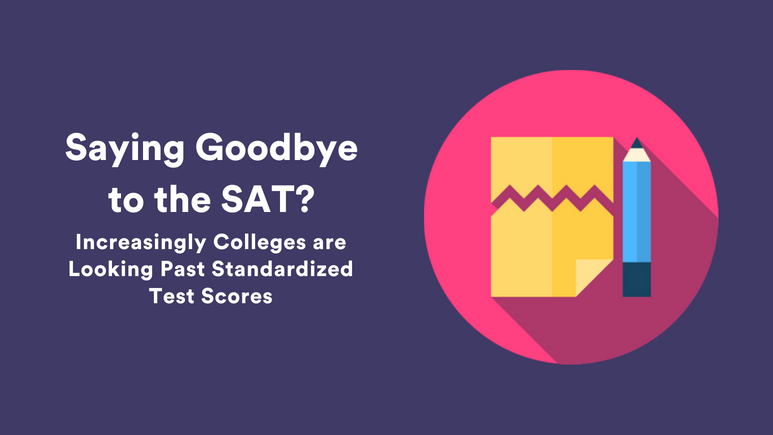
We’ve written before that standardized tests aren’t often the best way to measure students’ achievement.
Some would go so far as to say that high-stakes tests have negative impacts authentic teaching and learning.
But it’s hard to make changes when we rely on standardized tests as measures of accountability and college readiness.
Well, testing critics, rejoice!
More and more schools… major schools… are making the move to drop SAT and ACT score requirements for college admission.
The University of Chicago, ranked one of the top ten universities in the country, recently announced that starting this year they’ll require neither SAT nor ACT scores from applicants.
What’s the motive?
Apart from a general movement to de-emphasize the importance of standardized test scores, universities are finding that there is an important perk of ditching test scores in their application process.
The Case for Test-Free Admissions
Traditionally, the SAT (or ACT) has been one of the most important metrics used in college application decisions.
With students applying to colleges from across the country and around the world, these standardized tests are useful for comparing students.
Scoring a 4.0 at one high school might be easier or more difficult than at another. But the SAT makes it easy to see exactly how students from different schools line up.
So why are colleges ditching this useful indicator of student achievement?
As it turns out, it isn’t that useful.
Research has shown that SAT scores are actually not a very accurate predictor of college performance.
Additionally, many colleges feel that relying on SAT scores as an admittance metric has made their applicant pool less diverse.
Students from wealthier backgrounds tend to perform better on standardized tests.
More affluent students often take advantage of test-prep courses or private tutoring to help boost their scores.
These are luxuries that minority and low-income students are less likely to have access to.
As such, by ditching standardized test scores, universities are able to attract a more diverse applicant pool.
Simultaneously, admissions officers can focus on what they believe to be richer, more telling metrics of what makes a successful and engaged college student.
These include GPA, college essays, extracurricular accomplishments, and teacher recommendations.
What This Means for Teachers
As it stands, the majority of colleges still require applicants to submit either SAT or ACT scores.
(There are currently around 1,000 colleges that don’t require scores out of over 3,000 accredited colleges in the United States.)
While the SAT-optional trend is likely to keep spreading, teachers probably won’t be saying goodbye to these college readiness tests anytime soon.
That said, educators should be thinking about preparing their students in ways that will help them excel in college, not just gain admittance.
Coursework that is rigorous, open-ended, cross-curricular and project-based is more likely to mirror the challenging classes that students will encounter in college.
Teachers can also help by encouraging students to pursue their passions both inside and outside the classroom.
Giving students opportunities for authentic and self-directed learning will benefit students in multiple ways.
These rich learning opportunities will not only provide them with useful experiences to highlight in college essays and interviews, but will also prepare them to succeed when it comes time to manage a schedule, collaborate with peers, and choose a major in college.
Because at the end of the day, college admittance is just the first step in a long but rewarding journey.



That’s cool as a kid I always worry about college and getting into a “good one college” (I’m in High school)
Can you do a blog about which colleges are worth how much it costs??
I totally agree as a teacher with these interesting blogs
Thanks very much